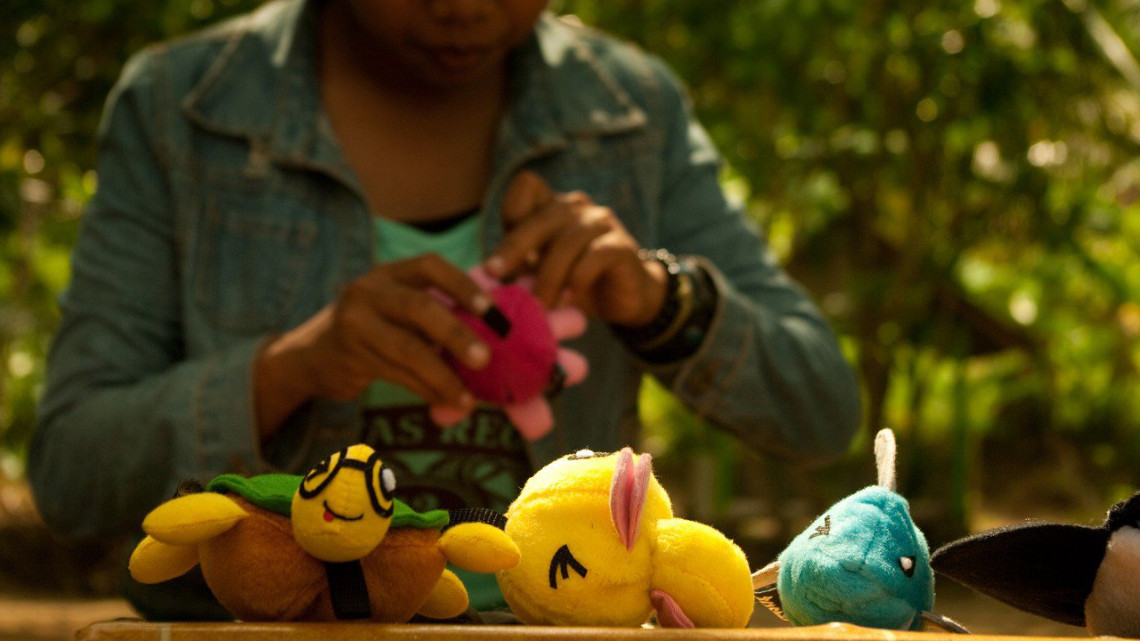Reusable designer bags to combat plastic waste
A recycled bag produced in a marine animal design: Therewith a german-indonesian researcher initiative aims to fight against plastic waste. Now they started a crowdfunding campaign.

“Would you like a plastic bag for your purchase?” That was a standard question in Germany until recently – and is still practiced in many countries such as the US and Indonesia. Most retailers know about the devastating environmental consequences that these plastic bags entail, and are thus willing to change this practice. Therefore the four founders behind the initiative “Making Oceans Plastic Free“ (MOPF) are hoping that Indonesia will also ban retail plastic bags in the near future – once they have a suitable alternative. The four friends from Germany and Indonesia are offering one: reusable shopping bags that look like marine animals, and are made from recycled plastic waste (PET).
10 Million plastic bags per day
Indonesia is considered to be one of the foremost offenders worldwide when it comes to plastic pollution in the oceans. Approximately 10 million plastic bags are being used in Indonesia each day. The foldable and water-repellent bag named Tasini is made of recycled plastic waste and can be re-used multiple times. The interdisciplinary researcher team developed the bags, with the clear aim in mind to replace the conventional plastic bags.
Protecting marine animals with fun
The founders of MOPF hope that especially the unique form of the bags, which resemble marine animals, as well as key chains and other accessories will entice many Indonesians to use these new kind of bags. “Active environmental conservation sometimes forces people into bans”, says MOPF co-founder Roger Spranz, an environmental researcher from Germany. “This is why environmental protection sometimes feels annoying. We think it is more effective and motivating if environmental protection is actually fun.”
Moreover, the fun forms of the bags were not chosen by coincidence. Rather, it was designed to appeal to Asian preferences. Additionally, the team behind MOPF want the marine animal look-alikes to become “environmental ambassadors”, since these animals suffer the most from the conventional plastic bag pollution.
Crowdfunding for money and awareness
1,000 Tasini prototypes have already been produced and tested. According to the tests, one Tasini bag could replace up to 400 conventional plastic bags per year. Currently, the inventors are looking for investors for a future large-scale production via the crowdfunding platform “Indiegogo”. The production in Indonesia will be done in accordance to the environmental and social standards, and should be cost-efficient enough as to be affordable for everyone, and thus have the maximum beneficial effect possible. In addition to the large-scale Tasini production, the MOPF team also aims to start an awareness campaign concerning environmental conservation and protection in Indonesia.
bb/jmr


